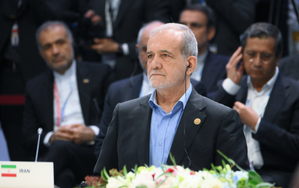
Tehran — Amid escalating hostilities with Israel, Iran announced on Monday that its Parliament is drafting legislation to withdraw from the Nuclear Non-Proliferation Treaty (NPT)—a move that could further destabilize the region and raise global alarms over nuclear proliferation.
The development was accompanied by a statement from President Masoud Pezeshkian, who emphasized that Iran has no intention of developing nuclear weapons. He reaffirmed that Iran’s nuclear program is dedicated solely to peaceful purposes such as energy production and scientific research, in accordance with a religious edict issued by Supreme Leader Ayatollah Ali Khamenei, which forbids weapons of mass destruction.
“The Islamic Republic of Iran remains opposed to nuclear arms, but will continue to pursue its legitimate rights to nuclear energy and research within the framework of international law,” Pezeshkian stated.
The NPT, established in 1970, aims to prevent the spread of nuclear weapons, promote peaceful uses of nuclear energy, and advance the goal of global nuclear disarmament. If Iran exits the treaty, it would mark a serious turning point and could fuel fears of a potential nuclear arms race in the Middle East.
The announcement follows three consecutive days of heavy missile exchanges between Iran and Israel, with no ceasefire in sight.
On Monday, Israel called on civilians near suspected Iranian weapons sites to evacuate, indicating plans for further airstrikes. Israeli officials warned that “a long list of targets remains” and that military operations would continue.
Since the collapse of the 2015 Iran nuclear deal following the U.S. withdrawal in 2018, Iran has dramatically expanded its uranium enrichment program. While Iran maintains that its nuclear activities are peaceful, the International Atomic Energy Agency (IAEA) has expressed concerns that Tehran now possesses enough enriched uranium to potentially construct multiple nuclear warheads, should it choose to pursue that path.
In a separate and notable development, Iran's judiciary on Monday confirmed the execution of Esmaeil Fekri, who was convicted of spying for Israel’s Mossad. He was charged with “corruption on Earth” and “moharebeh” (waging war against God), and the sentence was upheld by Iran’s Supreme Court before being carried out, according to Mizan Online News Agency.
The current wave of escalation began on Friday, when Israel launched a surprise offensive, claiming to target Iran’s nuclear and military infrastructure. Since then, at least 224 people have been reported killed in Iran, including senior military personnel, nuclear scientists, and civilians. Iran has retaliated with missile and drone strikes, which have reportedly killed at least 24 people in Israel.
With inputs from IANS